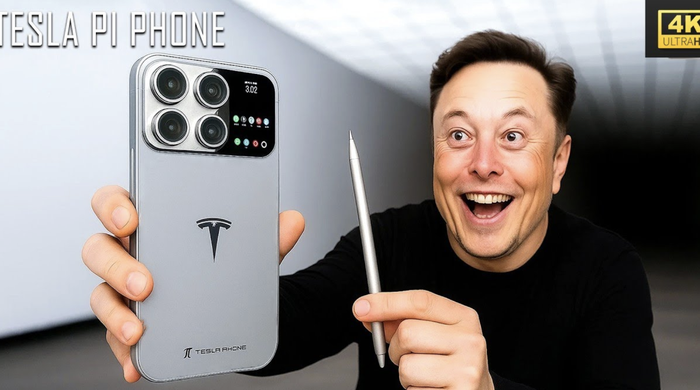Halfway to Healing – Sabina’s Ongoing Battle Against Neuroblastoma.2180
I wanted to share a few updates about our brave girl, Sabina.
Not long ago, we returned from the United States — our final trip as part of the clinical trial program. There are still six months left of taking the medication and follow-up checkups ahead, but this last visit marked a turning point. As always, the anxiety before each exam was overwhelming — no matter how many times we go through it, it never gets easier. But this time, we left with something precious:
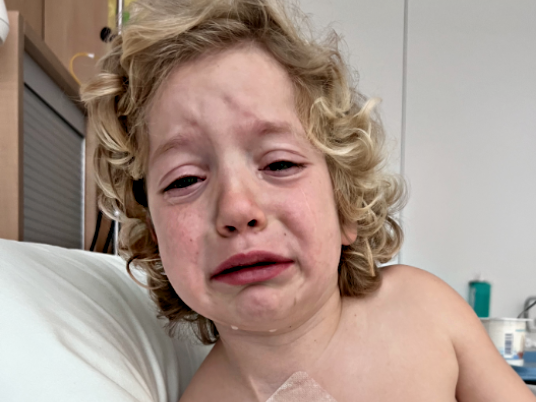
It feels like breathing again after years of holding our breath.
Life, slowly but surely, is finding its rhythm. A new school year has begun, and Sabina has just started second grade. She goes to school with enthusiasm, curious about everything, eager to learn. Watching her walk into the classroom with her backpack — something so normal, yet so extraordinary for us — fills me with indescribable gratitude.
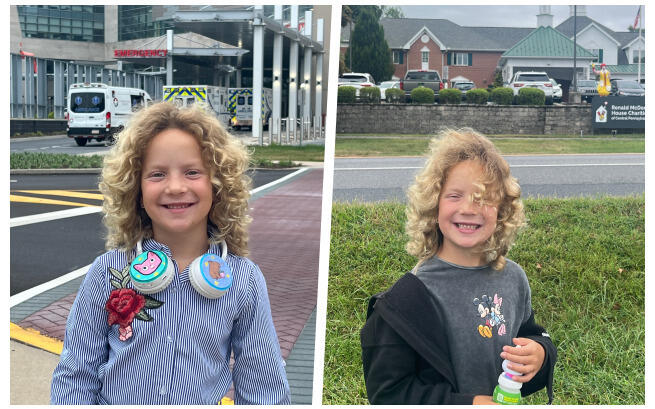
We believe this will be another victorious year for her.
But behind this fragile normalcy lies a story of unimaginable struggle — one that began in early 2022, when we heard the words no parent should ever have to hear:

That moment shattered our world. Sabina was diagnosed with stage IV neuroblastoma, an aggressive childhood cancer. A massive 9-centimeter tumor was growing inside her tiny abdomen. Around the same time, war broke out in our country. Overnight, our life became a battle on two fronts — against cancer and against fear itself.

I found myself alone abroad with three children, while my husband stayed behind, saving every bit of money he could to help us survive. Our days were spent inside hospital walls, fighting for Sabina’s life.

Our first hope came from Israel, where Sabina began her treatment — rounds of chemotherapy, surgery to remove the tumor, and then more chemotherapy. The months blurred together in a haze of hospital rooms and sleepless nights. We tried to cling to any sign of improvement, but uncertainty loomed over every scan, every test.

After completing her chemotherapy in Israel, we made the difficult decision to move to Spain for immunotherapy. The treatment there was less toxic and more affordable — but the cost, both emotional and financial, was still enormous.
For a while, things seemed to be improving. The scans looked better. Sabina’s strength began to return. Then came the blow that almost broke us — a relapse.
The cancer had spread to her brain.

Another urgent surgery followed. Fear came back, heavier than before. We had just started to believe again, and suddenly we were thrown back into the nightmare.
In September 2023, Sabina finished her last cycle of immunochemotherapy. Her doctors were cautiously optimistic — the results were finally where they should be. Step by step, treatment began to show results. And then, one day, we heard the word we had prayed for so long to hear:

It felt like light flooding into a room that had been dark for years.
Months have passed since that moment. Sabina is now undergoing post-remission treatment — taking a special medication called

This program is planned to last two full years, with regular tests every three months and five required visits to the U.S. After that, Sabina will continue with checkups for another three years — less frequent, but still essential.
Recently, the hospital sent us a bill for the upcoming five years of exams and monitoring. The sum is overwhelming — far beyond what our family can manage, even when divided into smaller payments. We are already at our financial limit, and Sabina’s path to lasting remission is still long.

And yet, despite the fear and exhaustion, there’s an unshakable strength that keeps us moving forward — Sabina’s strength.
She has endured more than most adults ever will: endless hospital stays, pain, nausea, blood transfusions, procedures that steal away her childhood. And still, she smiles. She laughs. She dreams. Her spirit is fierce, her will unbreakable.
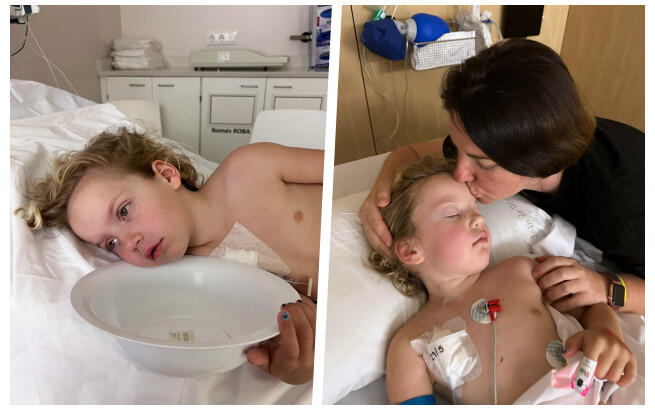
Every time I see her playing, coloring, or telling her teacher about the planets she loves so much, I realize that miracles don’t always come in grand gestures — sometimes, they come in the quiet resilience of a child who refuses to give up.
We still need help to continue her treatment. Every visit, every test, every bottle of medication counts toward her chance at a cancer-free future. We cannot do this alone.
Please — if you can — help us keep Sabina’s fight alive. Help us make sure her remission lasts, that she has the childhood she deserves, filled not with hospital walls but with laughter, school days, and sunshine.
We dream of the day we can finally go home — safe, healthy, and free from fear.
Thank you from the bottom of my heart for every donation, every prayer, and every kind word. Your support is the reason we’re still standing.
Because of you, Sabina is still fighting — and winning. 💛
English: Beaudin’s Battle: From Diagnosis to Triumph.1350

Beaudin has always been a bright, lively boy with a curious mind and a playful spirit. He discovered an early fascination with puzzles, especially the colorful Rubik’s cube. Unlike most kids his age, who would twist the cube aimlessly, Beaudin mastered the art of solving it quickly and with precision. He became what people call a “speed-cuber,” able to twist and turn the puzzle until all sides shone in neat rows of colors within moments. His parents often marveled at his patience and intelligence.
Outside of puzzles, Beaudin loved baseball. Whether it was practicing swings with friends or tossing a ball in the yard, the game brought him endless joy. And then there was Hatchet, the family’s playful dog and Beaudin’s loyal companion. Together, they shared laughter, long walks, and carefree afternoons. Life, it seemed, was full of all the simple joys a six-year-old boy could ask for.
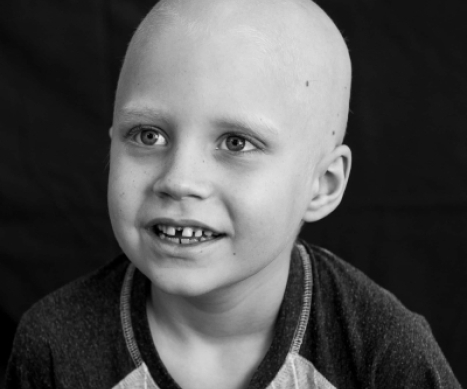
But in 2018, everything changed. What began as what seemed to be an ordinary cold soon revealed itself as something far more serious. Beaudin developed lingering fevers that refused to go away. Weeks passed with no real improvement. His parents, once comforted by the thought that it was “just a virus,” began to feel their concern growing heavier each day.
Doctors ran test after test, searching for answers. Oddly enough, most of the results came back normal. That should have been reassuring, but deep down, his parents knew something was wrong. The fevers dragged on. Beaudin, once energetic and playful, now seemed tired and withdrawn. He didn’t run around the house like he used to. He napped more often. He was not himself.
The uncertainty stretched on into 2019. And then came the news that shattered their world: Beaudin was diagnosed with acute lymphoblastic leukemia (ALL). The words felt like a crushing blow, almost impossible to accept. Their healthy, vibrant boy—so full of life—was now facing one of the most dreaded childhood cancers.
Treatment began immediately. Over the next 20 months, hospital visits, tests, medications, and procedures became the rhythm of life. For Beaudin, it was an entirely new reality. Yet, in many ways, he was lucky. His treatment path was considered straightforward. Unlike many other children with leukemia, he avoided extended hospital stays and dangerous complications. There were no life-threatening reactions or severe secondary conditions. His family clung to that blessing, grateful that despite the storm, there were still rays of light.

By 2020, Beaudin had reached the maintenance phase of treatment. Hope was blossoming again. The end of this long and exhausting journey seemed close—just five months away. His family dared to imagine life after cancer: school, baseball games, speed-cubing competitions, and endless afternoons playing with Hatchet. But fate had another twist in store.
During a routine lumbar puncture, doctors discovered abnormal white blood cells in his spinal fluid. It was a chilling sign: the leukemia had returned.
The relapse hit harder than the first diagnosis. His parents felt as though the ground had been ripped out from beneath them. Everything they had endured, all the progress they believed they had made—it all seemed to collapse in an instant. Yet amidst the fear and heartbreak, Beaudin’s mother refused to give up.
She began scouring every source she could find, desperate to discover another option. Night after night, she read articles, clinical studies, and the stories of other families. Then, finally, she found it: a clinical trial at the Children’s Hospital of Philadelphia (CHOP) that could offer a promising treatment for relapsed ALL.
The discovery reignited hope—but it also came with enormous challenges. Their home was in Denver, Colorado. Philadelphia was halfway across the country. To participate in the trial, Beaudin would need to travel frequently for treatment. Airfare, lodging, food, and all the added costs seemed overwhelming, especially after nearly two years of medical expenses.
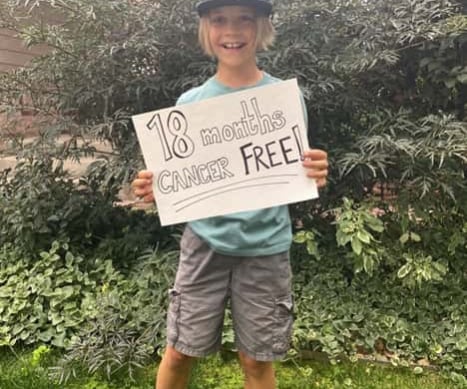
Still, when it comes to a child’s life, there is no choice. “When you’re making life and death decisions for your child, finances fall very low on the list,” his mother said. And then, a lifeline appeared. A social worker introduced them to the Alex’s Lemonade Stand Foundation (ALSF).
Through the foundation’s Travel For Care program, the family received financial support to cover airfare costs. This assistance changed everything. “We are so thankful for the Travel For Care program for allowing our family the possibility of pursuing a relapse treatment option for Beaudin that we believe will be his forever cure,” his mom said. “Having to make care choices for your child under the worry of financial pressure is something no family should ever have to do.”
Thanks to the program, the family made countless trips from Denver to Philadelphia. Each time, they carried both anxiety and hope. Beaudin, though still a child, understood that he was fighting for his future. His resilience inspired everyone around him.
The trial was demanding, but Beaudin endured it with courage. His parents were at his side every step of the way, offering strength on the hardest days and celebrating every small victory. Through it all, Hatchet waited at home, ready to greet his boy with wagging tail and unconditional love after every return trip.
Slowly but surely, the treatment worked. The day finally came when the doctors confirmed what his family had been praying for: Beaudin was in remission again.
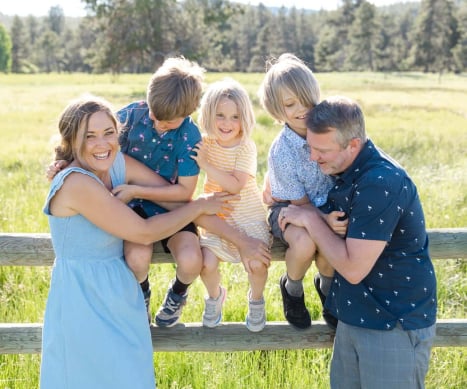
Now, more than two years later, Beaudin is thriving. He is cancer-free, living the kind of childhood that was once uncertain. He spends afternoons solving Rubik’s cubes in record time, laughing on the baseball field, and enjoying the companionship of his faithful dog.
His story is not just one of survival—it is one of resilience, love, and community support. His family continues to share their gratitude for ALSF and the generosity of strangers who made their journey possible. “We will never forget the way people stepped in to help when we needed it most,” his mom says.
Beaudin’s journey reminds us that even in the darkest times, hope can be found. Science, compassion, and the relentless determination of families can create miracles. Today, Beaudin is not just a boy who loves Rubik’s cubes, baseball, and Hatchet. He is also a symbol of courage and perseverance, a shining example of what it means to fight and to win.
And for his family, every moment with him is nothing short of a gift.



